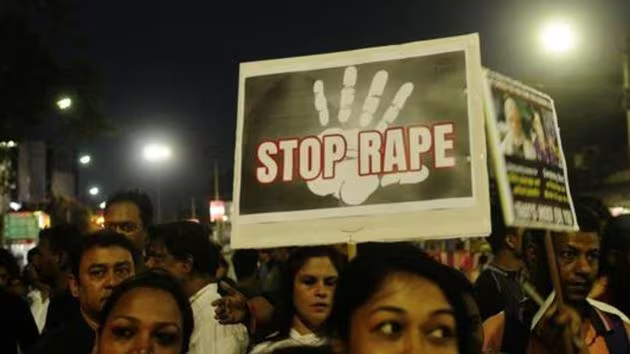Now that we are making our child sexual offences law gender neutral, isn’t it time we started talking about adult male rape survivors?

Men themselves are reluctant to report being raped for fear of being judged by a society with iron-clad notions about masculinity. “Aren’t you a man? Why didn’t you hit back? Were you enjoying it,” are some of the questions survivors are often asked, “pushing them further into a closet by their own kind,” says activist Harish Iyer.(HT File Photo)
Sohaila Abdulali is telling me about the time many years ago when a man called up a Rape Crisis Centre in the US. He had been raped by a teacher some years ago, he said. But men can’t possibly be raped, replied the people at the centre, and hung up.
This would be unthinkable today, says Abdulali whose book, What We Talk About When We Talk About Rape is out in October. The fact that men too are victims and survivors of sexual assault and rape is a no-brainer. “Rape is a horrible violation,” she says. “Why would it be any less for a man?”
In all the angst about India’s rape crisis, this fact has somehow been lost. Conceding that “child sexual abuse is gender neutral”, Maneka Gandhi, minister for women and child development, is reportedly set to amend the existing Pocso (Protection of Children from Sexual Offences) law in response to a petition on Change.org. But there is, as yet, no dialogue about the rape of adult men by other men.
“I didn’t expect a response so soon,” says activist and film-maker, Insia Dariwala, whose petition has so far gathered over 1.22 lakh signatures. Dariwala, who was sexually abused when she was 10, discovered that her husband too had been sexually abused when he was five. “Millions of men are living an isolated life of pain endured as children. Then why were their stories never told?” she asks.
Why?
Partly it’s because we don’t recognise male or even transgender victims in our rape laws. We have no data on adult male rape in India. The closest is the commonly cited 11-year-old government study that found 53.2% of children said they had been sexually abused; of these 52.9% were boys.
During the Justice Verma Commission hearings in 2012, there was some talk about gender-neutral rape laws, but, says lawyer Rebecca John, “The commission was responding to a specific crime and, so, rather than expand the scope of the law, it was important to strengthen it for women.”
But also it’s because men themselves are reluctant to report being raped for fear of being judged by a society with iron-clad notions about masculinity. “Aren’t you a man? Why didn’t you hit back? Were you enjoying it,” are some of the questions survivors are often asked, “pushing them further into a closet by their own kind,” says activist Harish Iyer.
Dariwala says her petition was motivated by a desire to have the same punishment prescribed by law for male and female child victims, even though she is opposed to the death penalty. But, she says, “We need to look at gender equality in our rape laws too.”
The question gains urgency now that the court is hearing why Section 377, which criminalises even consensual sex between adults, should be read down. Now is the time to correct one gender imbalance. Now is the time to recognise that men get raped too.
Namita Bhandare writes on social issues
The views expressed are personal